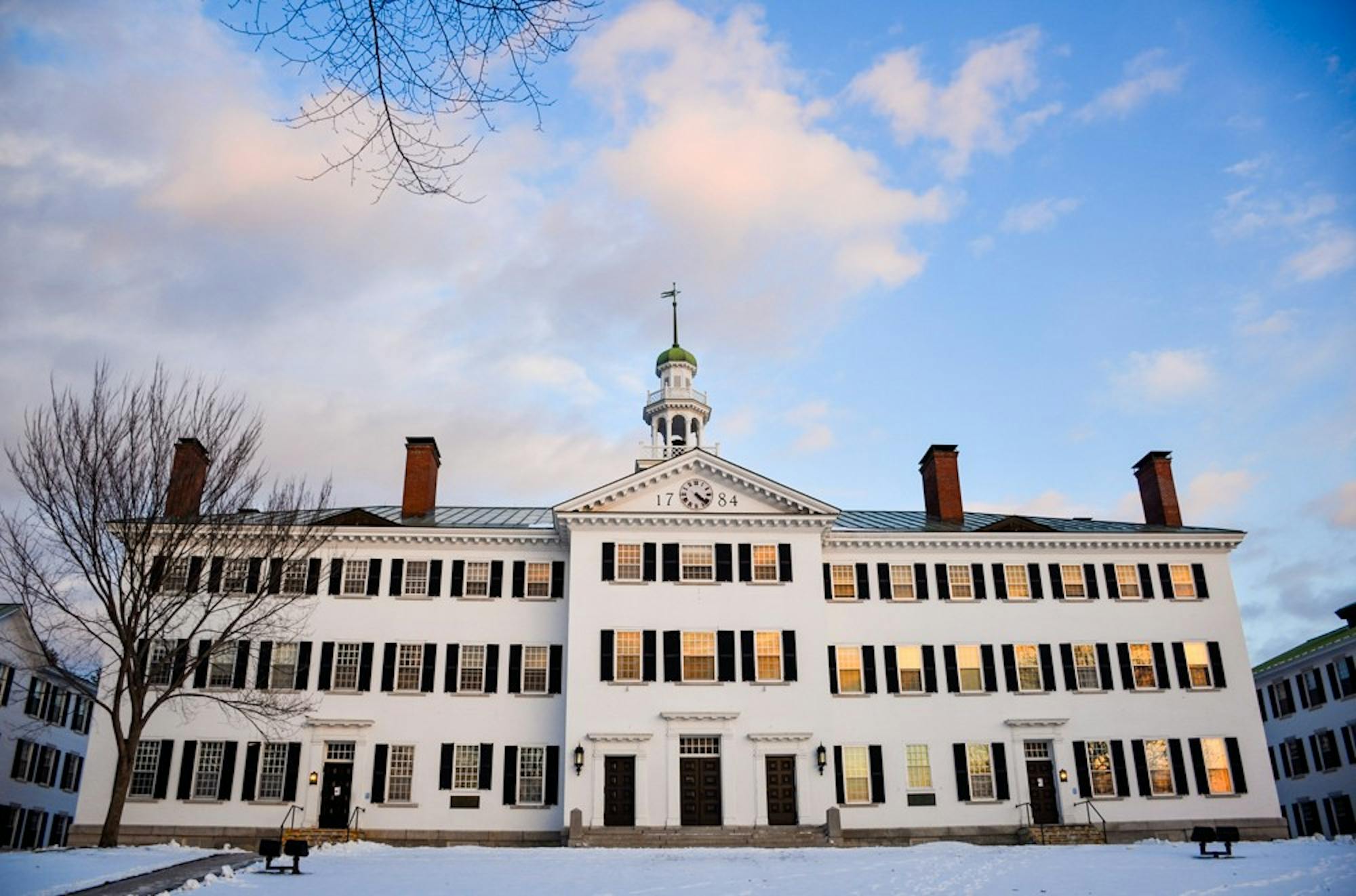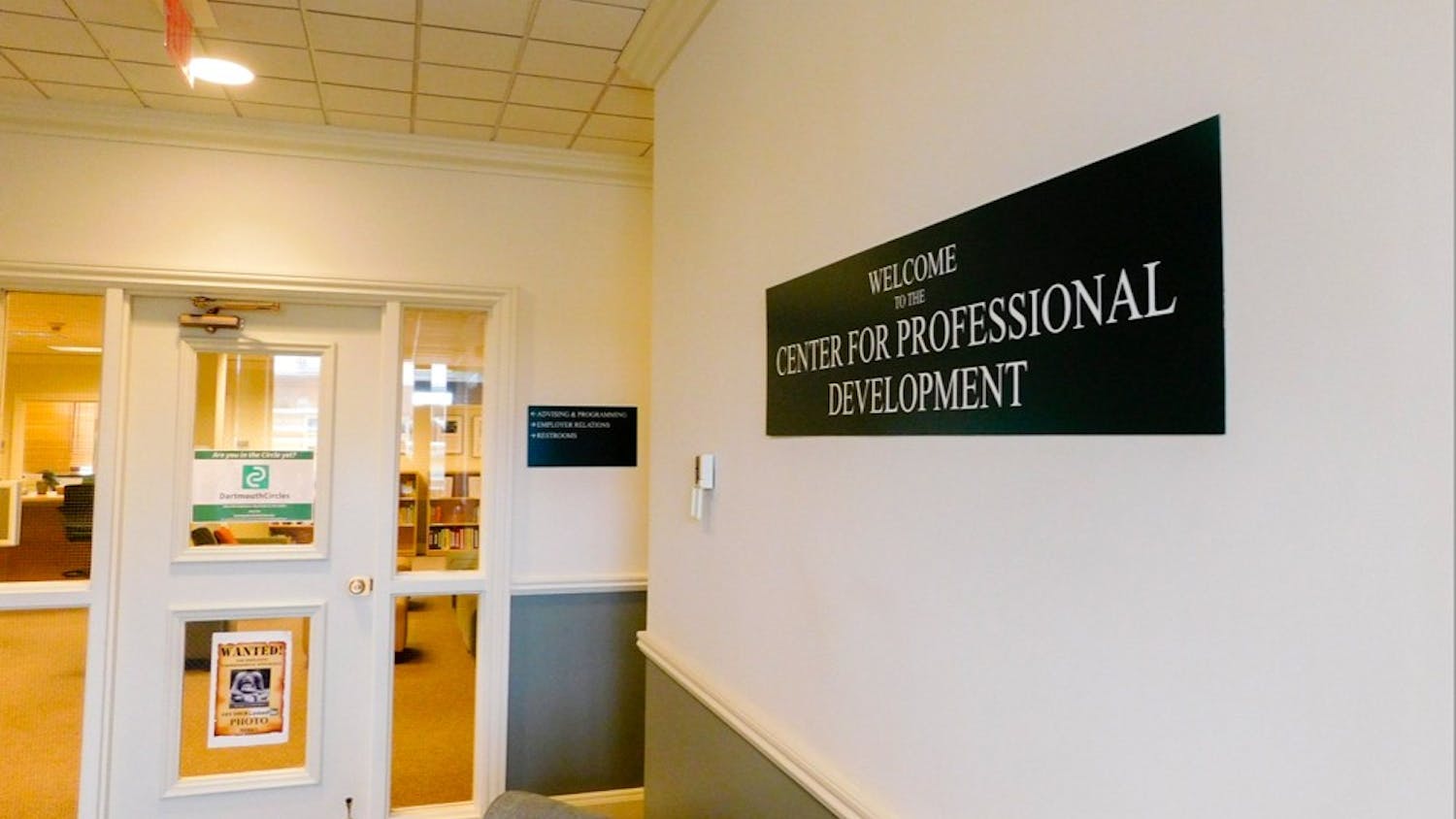Over the past five years, an average of 12 percent of Dartmouth students from each class year who pursue degrees beyond their undergraduate education have gone on to law school.
However, the main resources available to students interested in law are student-run associations, guidance from professors with legal backgrounds and Dartmouth’s alumni network.
“I don’t really know that Dartmouth has a lot to offer right now,” said Dartmouth Minority Pre-Law Association president Olivia Lovelace ’21. “There is no designated adviser. There aren’t a lot of designated programs to really help us with preparation for law school admission or the LSAT. It’s all really student-initiated as far as I can tell.”
Selina Noor ’22, who currently shadows for a legal consulting company, said that when she asked the Center for Professional Development for internship opportunities, she was disappointed with the resources available.
“All they really said is that they can help with [law school] applications and nothing much else,” Noor said.
Max Mickenberg ’21, a member of the Mock Trial Society, echoed this concern by noting that the CPD offers few law-associated internships.
“The majority [of internships] are in finance and consulting,” Mickenberg said. “I can only remember two law firms that came up over sophomore summer recruiting [in 2019] and then a bazillion consulting firms.”
CPD interim director Monica Wilson described the resources available to pre-law students in an email to The Dartmouth.
“We meet one-on-one with students to discuss their interests and to provide information and support related to the law school application process, LSAT testing, timelines, and law school statistics,” Wilson wrote. “A student just needs to log into our system to schedule an appointment. We routinely post and promote law-related internships and paralegal opportunities [and] provide a law school guide in the resource library of our DartBoard system.”
This past fall, the CPD also held a law school fair, a law school panel with the University of Chicago, the University of Michigan and the University of Texas, as well as information sessions with Harvard Law School and Yale Law School.
Mickenberg said that he participated in a graduate schools fair organized by the CPD and spoke to Harvard Law representatives, calling it a “good opportunity.”
In lieu of a dedicated pre-law adviser and other resources, students have used the CPD’s events to obtain more information about future career choices.
“For a time, I was worried about the major I was picking,” Mickenberg said. “It took me going to a career fair and talking to a Harvard Law representative for them to tell me to relax. It would be much easier if I could shoot a Dartmouth representative an email.”
Former CPD assistant director for advising and programming Zachary Vigliani, who was familiar in pre-law legal resources and organized pre-law events for students, declined to comment for the story. He left Dartmouth in fall 2019.
Lovelace said that although the CPD has been supportive, it does not have a dedicated law program like other colleges.
The kinds of resources available at other institutions include designated advisers and LSAT preparation programs. Brown University, like Dartmouth, does not have a law school. However, Brown has three designated pre-law advisers and a website that details available resources, including events and opportunities, LSAT preparation material and readily available statistics on Brown alumni who attended law school.
“There is no guidance for anyone, but especially if you are a minority and you don’t have the social capital to understand how to navigate the application process, among other things,” said DMPLA member Attiya Khan ’22. “I think there are many people who are being neglected when it comes to this career, [which is of] interest to many people who come from that sort of background.”
Some students have also turned to professors with training in the legal field, such as Ethics Institute director and government professor Sonu Bedi, who has a law degree in addition to a variety of other degrees — including a Ph.D.
“The kind of advice I give is not so much the nuts and bolts [of applying to law school],” Bedi said. “If students consider law school, I will just informally talk to them about my experience going to law school, being a lawyer for a very short period of time and why it wasn’t for me.”
Without a centralized system to assist pre-law students, finding opportunities and even reaching the right professors may be a matter of “getting lucky,” according to Mickenberg. For example, he noted that were it not for having a class with a professor with legal experience, he would lack an important resource.
Bedi said that he encourages students to reach out to people with legal expertise through the alumni database and to partake in existing student-run organizations like the Dartmouth Law Journal — which he advises — the DMPLA and the Mock Trial Society.
The Dartmouth Law Journal is an undergraduate journal that publishes articles from law professors, law students and practicing lawyers from around the country. According to co-editor-in-chief Michael Nachman ’21, the Dartmouth Law Journal publishes two issues a year and is comprised of around 80 editors.
“We try to be a resource for students as much as we can,” Nachman said. “I would say the biggest way we act as a resource for people interested in law is that our editors get to engage with the academic side of law.”
The DMPLA organizes school tours, conference trips, keynote speeches, dinners and collaborations with the CPD to offer presentations about preparing for law school, according to Lovelace.
“We try to provide pre-law resources and opportunities because there [aren’t] a ton at Dartmouth,” Lovelace said. “We don’t have a law school, so we don’t have a lot of people who have law degrees around. There aren’t a lot of people who can help us.”
The third student-run, law-oriented club at Dartmouth is the Mock Trial Society. The group’s members simulate trials and compete against other universities from the East Coast, according to Mickenberg.
The last resource available to undergraduate students interested in law is the alumni network, largely represented by the Dartmouth Lawyers Association. DLA sponsors student internships through the Rockefeller Center for Public Policy for students interested in pursuing a legal career, as well as an annual Law Day event in which they bring in a speaker.
“For any student interested in possibly pursuing a legal career, those organizations are fantastic opportunities,” said DLA president Thomas Skilton ’89.
Noor is a member of The Dartmouth staff.



